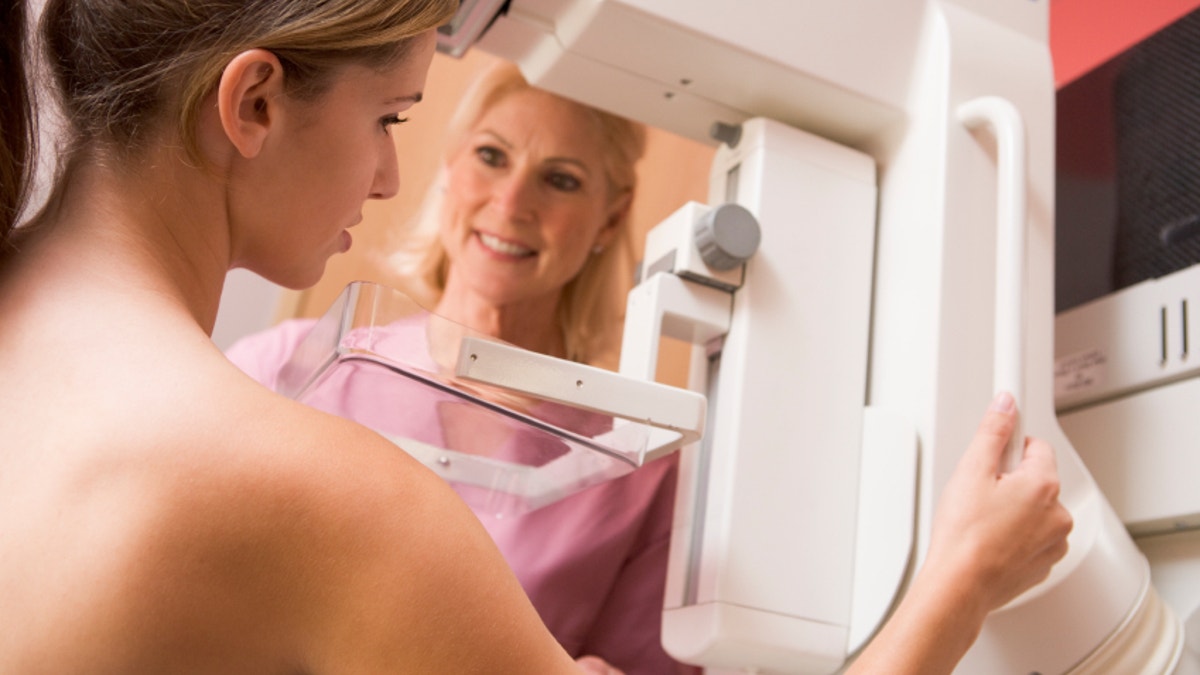
Nurse Assisting Patient Undergoing Mammogram (iStock)
Women are being treated unnecessarily for breast cancer due to mammograms "over-diagnosing" cancers, which would never cause harm, according to an Australian report.
In an article published in the Medical Journal of Australia, Monash University breast cancer researchers Robin Bell and Robert Burton called for women invited to use the country's publicly-funded BreastScreen program to be presented with a more balanced view about the benefits and harms of breast screening.
Their analysis found that improvements in cancer treatments, rather than early detection through screening, were likely to have caused the 21 to 28 percent reduction in breast cancer deaths since the program began in 1991, the Herald Sun reported Monday.
A 2010 study found that for every 2000 women invited for screening throughout 10 years, one would have her life prolonged but 10 healthy women would be diagnosed as breast cancer patients and treated unnecessarily.
The Cancer Council has backed calls for women to be informed about the risks and benefits of screening, including the uncertainty of over-diagnosis, but insist that breast screening has contributed substantially to an overall drop in breast cancer deaths. It said three evaluations of mammography screening for women aged 50-69 years had put the reduction in breast cancer mortality at between 30 and 47 percent.
Bell, an associate professor, said the benefits of the BreastScreen program were overblown.
"This comes down to the balance of harm versus benefits," Bell said.
"My view is that women need to be given more balanced information about the BreastScreen program when invited to be screened.
"Overdiagnosis amounts to women having a small, slow-growing cancer being diagnosed and treated, where in her lifetime that cancer may not have required treatment."
She said the impact of breast screening was diminishing as the outcomes of treatment for breast cancer improved and the balance of benefit to harm of breast screening was becoming less favourable.
